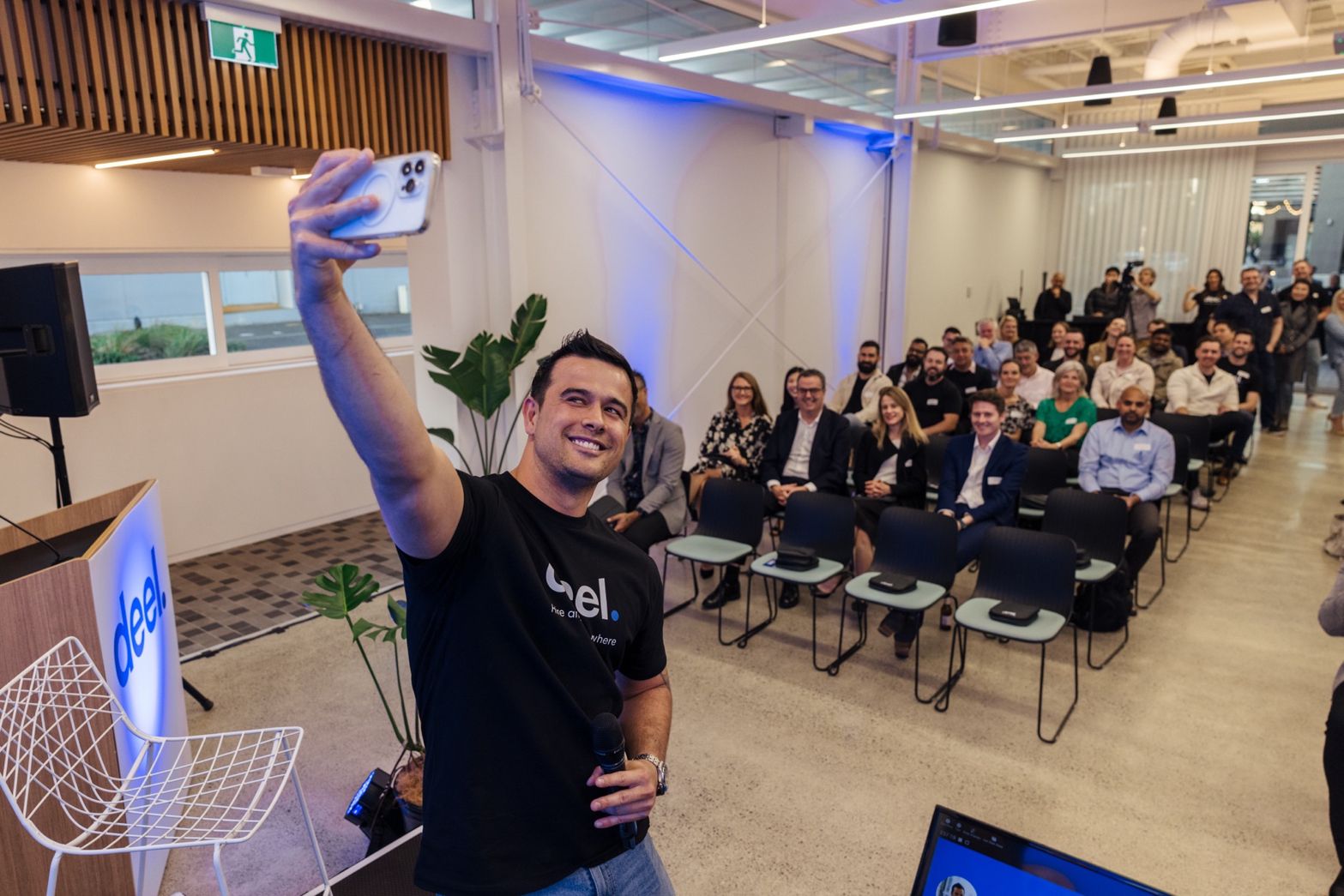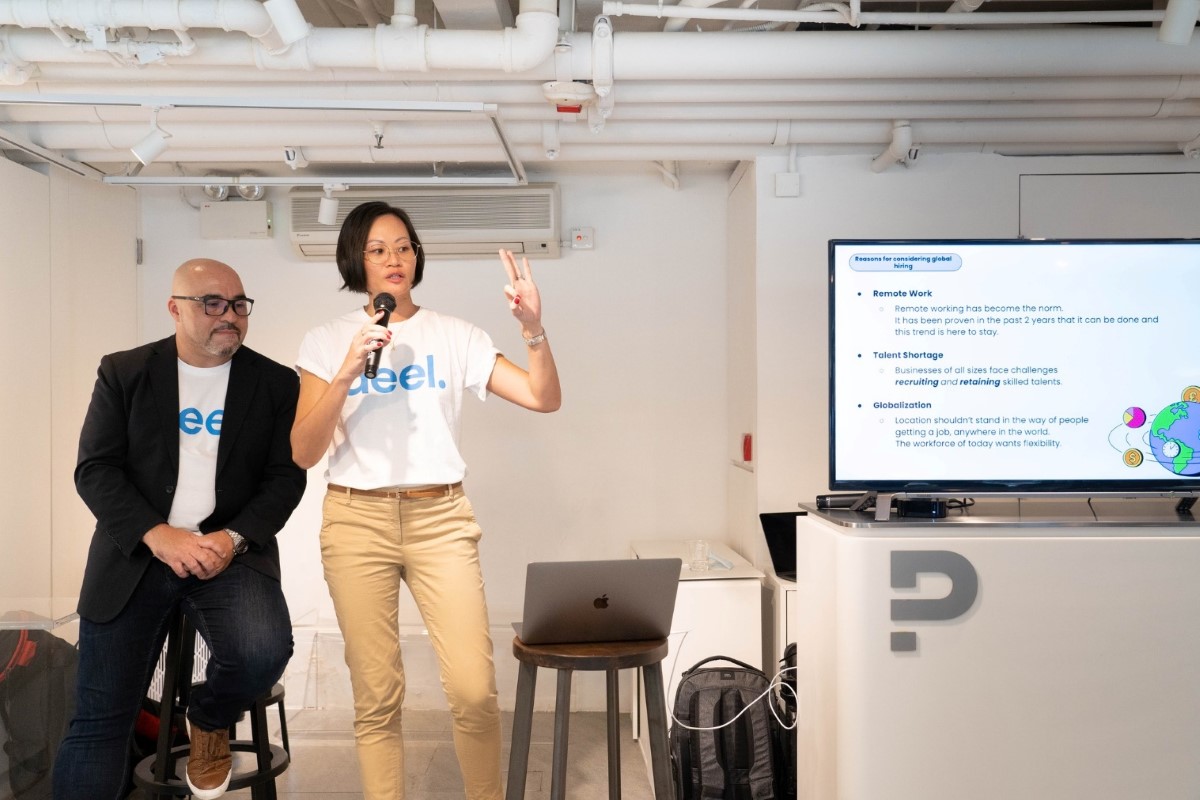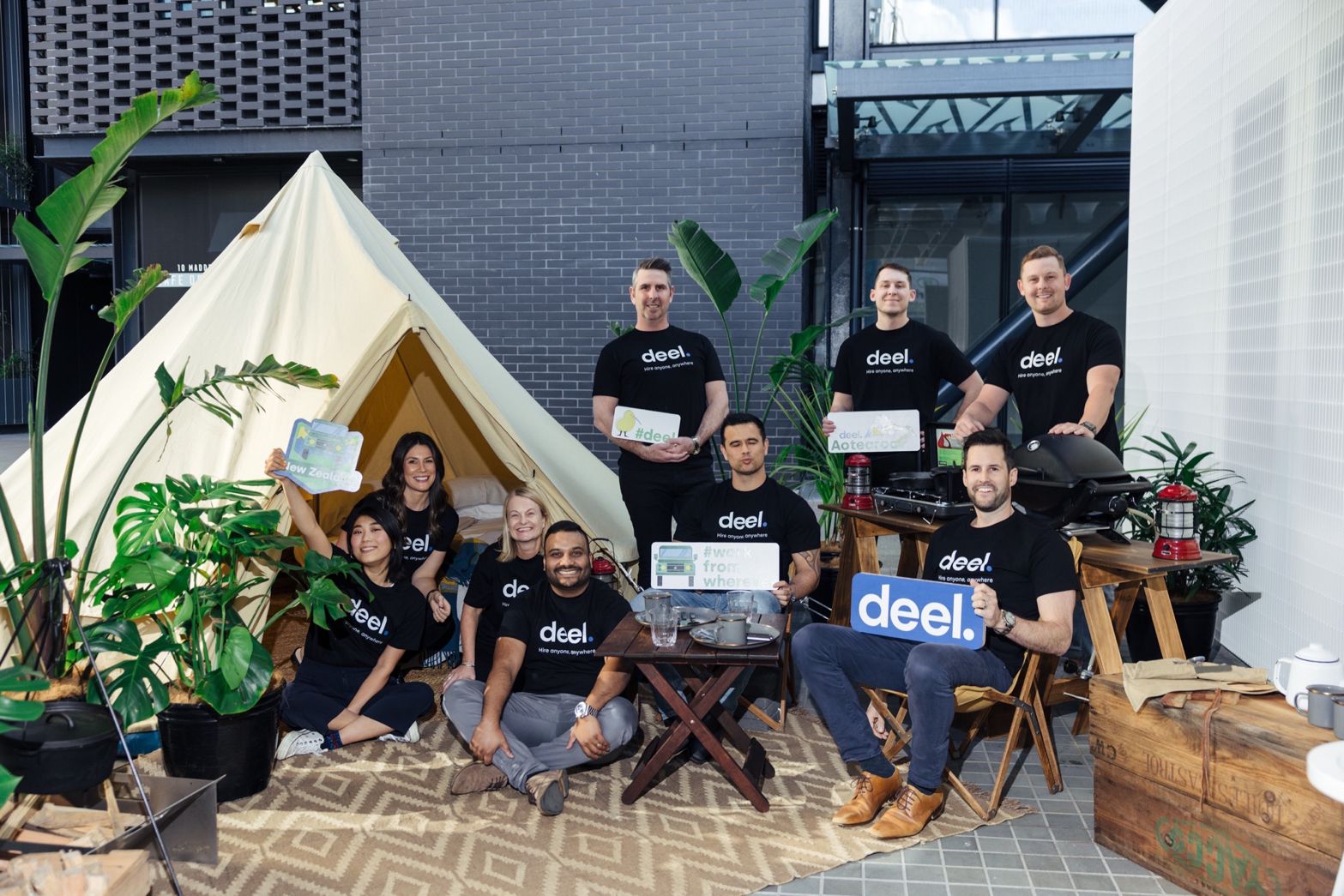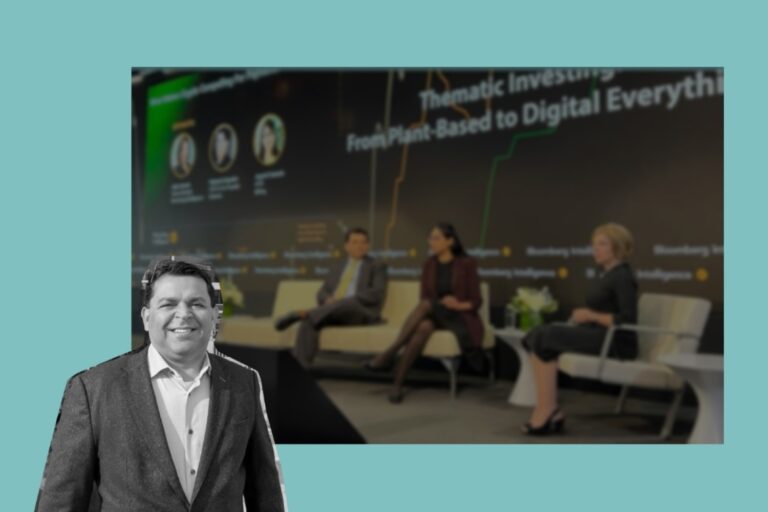Deel to “Capitalize” on Post-Pandemic Hiring Hardships & Turbo Charge its 20x Growth
Hiring talent from all over the globe is complicated because of a variety of reasons. To comply with local laws and recruiting regulations in these nations, you must set up local entities there.
Particularly considering the epidemic two years ago, social distance made the hiring process more challenging. Businesses at the time raced to set up their staff remotely when the virus pandemic expanded.
That’s where Deel jumped into the game, the startup was simply in the right place at the right time with its timely HR hiring platform. But’s it not the only thing that Deel could do.
Deel is a company that was founded in April 2019 by Alex Bouaziz and Shuo Wang. It provides a comprehensive solution for compliance and payroll issues related to hiring and managing a global team. Its platform offers a range of features, including payroll, HR, compliance, perks, benefits, and more. It is designed to help companies hire and manage their teams effectively, no matter where their employees are located.
“What we do at Deel is we help companies globally hire,” said Bouaziz. “So, if you want to hire someone in another country, then we have all the infrastructure for you to do so in a couple of minutes.”
It’s clear to see the enormous growth of this startup since the start of Covid 19, but in the field of technology, luck is vital, but without efforts poured in, no companies could take the chance when it’s their time. The next parts will describe in detail what’s made them today. Let’s read on.
From French Immigrant to Leading Global Compliance Space
Deel was founded in 2019 by Alex Bouaziz, and Shuo Wang, both graduates of MIT. Alex Bouaziz is something of a globetrotter. He was born and raised in France, and at the age of 16, he and his parents moved to Israel.
Prodware Group in France. The IT group is now trading on the Paris Stock Exchange. His family is a huge inspiration on the road he constructs Deel.
After graduating from MIT, Bouaziz relocated to London and enrolled in Imperial College’s doctoral program in environmental engineering. However, he later made the decision to leave the program and go back to Israel to start his own business.
He established the company Lifeslice, an app that allowed people all across the world to make videos together. The business did not make the hoped-for breakthrough, but Bouaziz came away with a very important insight.
“I was working in Israel but the company had engineers in the US, France and the UK. In order to pay them, I had to manually transfer money from Bank Leumi’s website. It worked terribly and did not meet local regulations. The entire experience was not good.”
This problem was not only recognized by Bouaziz, but also Shou Wang when she managed a startup in the US and encountered the same issue. Consequently, they teamed up to found Deel as a platform dedicated to providing businesses with a tool to automate onboarding, payroll and compliance for a team anywhere in the world.

The startup’s tech technology lets teams create customized contracts, meet local laws and compliance through a network of local specialists, and streamline the whole payment process with a click.
Deel was born right before the pandemic outbreak, with its platform, the company helped many companies get over the hardships during Covid 19. The crisis undoubtedly annihilated a large number of entities, but some, like Deel, saw the light and thrived. Additionally, Covid 19 has altered the modern world in other ways as well. We have witnessed the biggest trend toward working from home two years into the pandemic.
The Covid 19 Forced a Massive Work from Home Experiment
In March 2020, businesses all over the country abruptly closed down their offices and instructed employees to work from home endlessly as a result of the pandemic.
Many first believed the shutdowns would last a few months. However, a year later, millions of employees are still engaged in remote work.
A lot has happened in the past 24 months as a result of the pandemic forcing a sizable portion of the global workforce to engage in a remote-work experiment on a scale never previously witnessed.
Our personal lives and work lives are no longer clearly separated from one another. Working at the kitchen table has become customary, and for parents it is now a daily problem to balance virtual education while attempting to meet work obligations.
And the pandemic also made the hiring process become more challenging. Open a local office, register your address as a subsidiary, open a local bank account, and manage intricate local requirements for payroll, taxes, legal, and HR if you want to hire staff in a foreign nation. It’s an expensive and daunting task that can sometimes take months. And yes, you can’t do it during the lockdown.
That’s why Deel has become a powerful instrument for hiring and managing skilled workers throughout the world. It determines the best model according to your needs and remains unbiased with regards to your aims and goals.
Since the moment Deel arrived, the startup has attracted interest from businesses looking for their solutions and, particularly, venture capitalists eager to support this potential Deel.
By May 2020, as nations locked down against Covid-19 and workers went full-time remote, companies realized they were no longer constrained by physical location—and Deel raised $14 million in funding. They raised an additional $30 million in September of that year.
Deel reached $48 million in a short period of time, and although Bouaziz insisted that the startup was keeping its valuation a secret, he did disclose that the amount had increased since May 2020.
That may seem like a fairly quick development, but it speaks to the company’s momentum. Deel presently has thousands of users across more than 140 countries and is used by more than 500 companies (plus another 100 since May 2020). Additionally, it emphasizes the niche market segment in which Deel operates and the demand for what it offers.
However, this is hardly Deel’s most expressive creation. Few businesses have ever achieved decacorn status in such a short amount of time, but Deel has inscribed their name on this honor board.
24 Months to Make Magic Happen – Deel Hit Decacorn Status.
After the experiencing 20x growth in 2020, the San Francisco-based company announced that it raised $156 million in Series C funding in April, 2021.
The raise was noteworthy for a number of factors. For one, Deel had just obtained a $30 million Series B funding less than seven months prior. So, it was essentially more than 5x the size of that round.
That’s also a big deal because it pushed Deel, a three-year-old company, to unicorn status with a $1.25 billion valuation after a successful Series C round of funding.
After 6 months, it reaches a $5.5 billion valuation in October 2021 with a $425 million Series D round of funding, Deel’s valuation has increased significantly.
Following its success, in May 2022, the company’s new valuation at $12 billion with a pitiful $50 million fundraising from current investors including Andreessen Horowitz, Spark Capital, and Y Combinator as well as new investors like Laurene Powell Jobs’ Emerson Collective.

To say that Deel has experienced rapid growth is an understatement. Recently, the business garnered media attention when CEO and co-founder Alex Bouaziz announced that Deel had surpassed the $100 million ARR mark. In December 2021, he also disclosed that Deel had grown to $50 million in ARR, implying that the business had begun the year with about $4 million in ARR.
Deel is an illustration of a business that was in the right place at the right time, aided by what appears to be strong execution. The company claims to allow employers to hire employees and contractors in less than five minutes without needing a local entity. Additionally, it promises to enable businesses to pay teams in more than 150 different currencies with “with a click.”
The COVID-19 pandemic has increased demand for remote work across the globe. Deel continues to grow by more than 20% month over month, according to sources acquainted with business internal affairs. Additionally, sources claim that it has a very low burn rate; in 2021, Deel consumed “just under $10 million.” That number is expected to increase some this year as the company continues to scale. However, given the size of the funding, it seems that Deel’s margins are in the 82% to 85% area.
According to the same sources, Deel chose Emerson as a lead investor primarily because of its focus on impact investing. With this investment, Deel “now has access” to the firm’s portfolio and can help those companies grow internationally — which reportedly matches up with its own mission around social impact.
According to reports, the company intends to use its fresh funding for M&A, product development, and recruiting.
Deel reported that their global customer base increased from 1,800 to over 4,500 just between April and October 2021. Customers at the time included, among others, Shopify, Dropbox, and Coinbase.
Looking at their enormous growth from the start, we can’t not hold our expression back, we just can say “wow”. However, financial performance is just a part of the successful startup, and in fact, it’s just the final stage of a journey consisting of so many hardships and also, effort in building a product that could solve a problem in this society. So, what’s in the product of this startup that helps the hiring simpler?
Deel Frees People to Work Remotely from Anywhere in The World
Those companies that offer a remote-first distributed workforce can recruit and hire anyone in the world. They are no longer limited to applicants who reside close enough to the workplace to commute. And for job applicants, they are now free to search for jobs wherever they want.
Deel and other businesses in this field will alter how people live and work. For example, a person living in India, the Ukraine, Costa Rica, or South Dakota formerly couldn’t obtain a fantastic job with a Silicon Valley software company or at a prestigious investment bank without uprooting their lives, saying goodbye to their friends and family, and moving. A person can now apply for jobs anywhere in the world thanks to the number of organizations that now provide remote work possibilities.
On the other hand, you are free to move if you want. Imagine how much better your lifestyle would be if you could live in a low-cost area while earning the salary that big-city employers offer. Why stay in pricey cities like New York or San Francisco when you can go somewhere cheaper to pay your rent and mortgage?

It’s even better when your money goes a lot further because taxes are much reduced and real estate prices are reasonable. When you relocate to a sunny area with amiable people, safety, and public schools that are open and provide your children with a top-notch education, your quality of life substantially increases.
Companies that prioritize remote work and have access to a global talent pool will be able to develop a staff with a wide range of skills. They’ll also get the best talent, as they cast a much wider net compared to their office-bound competitors. It is simply the law of large numbers. Finding applicants of different colors, faiths, nationalities, and sexual orientations is simpler because talent acquisition is not constrained to a single small geographic commuting radius.
Employing workers from a diverse range of nations benefits society. It promotes a greater understanding and appreciation of various cultures to contact with people who have diverse religions, beliefs, and traditions. You’ll discover that there are more points of similarity than distinction. It might clear up a lot of misunderstandings we all may have about people who reside in other cities, states, and nations.
For people who are a little adventurous and willing to take some risk for high rewards, Deel can pay contractors and employees with bitcoin and other digital currencies. The business offers direct money delivery to digital wallets or bank accounts.
Currently, around 5% of all withdrawals from the Deel platform are made in cryptocurrency. Ethereum is the second most popular withdrawal option after bitcoin. Solana and USD Coin are becoming more well-known. Argentina, Nigeria, Brazil, Mexico, and India are the nations that are experiencing the most growth in this area.
That’s what happened in the past. Now, when the Covid is no longer a big problem, another issue is threatening the peace of our world. The Russia Ukraine crisis is still ongoing and affect many innocent victims. In that context, Deel has taken some actions to help Ukraine people during the context.
Aiding Ukrainian Employees During the Hardship with Card Transfer
In the last August of 2022, Deel announced the launch of its latest feature, Instant Card Transfer. Deel is able to provide contractors in some countries with the opportunity to get paid promptly and directly to their bank accounts using their cards thanks to an innovative cooperation with Paysend, a UK-based fintech with over 7 million clients.
In the past, it was usual for contractors to experience payment delays owing to problems with transfers between intermediate banks or other third-party solutions, pay exorbitant SWIFT costs for cross-border payments, or all three.
Employers may also experience difficulties as a result of having to manage a difficult payment procedure that is time- and resource-intensive and frequently fragmented.
Instant Card Transfer removes that inconvenience by giving contractors an easy way to access their money when they need it, without unnecessary delays, costs or uncertainty around when their salaries will hit their bank accounts.

Deel is launching this functionality in the Ukraine, Belarus, Georgia, Honduras, Philippines, Kazakhstan, and the Dominican Republic at first because these countries have lengthy currency exchange and international payment processes.
To help make paying contractors simpler and level the playing field when it comes to hiring internationally, that’s the motivation of Instant Card Transfers. The company believes that geographic location shouldn’t limit where companies hire, and that top tier talent shouldn’t be limited because of complex payment processes.
It’s just one of the many ways Deel is eradicating recruiting limitations abroad. Deel’s mobility division recently established a deal with the UAE government to expedite the issuance of tech visas to more people. They also bought Legalpad to help companies find talent globally.
Contractors in Ukraine, Belarus, Georgia, Honduras, the Philippines, Kazakhstan, and the Dominican Republic now have a simpler way to obtain their income thanks to the collaboration with Paysend. In the upcoming months, Deel intends to introduce this withdrawal mechanism in more markets.
Bottom Lines
Deel, which has only been in the market for a little over two years, has helped to improve the recruiting process, made it easier for people to find jobs anywhere in the world, and help businesses that want to hire talented people.
Deel, one of the Silicon Valley’s fastest-growing firms, faced the luxury issue of a glut of incoming candidate demand. In order to keep up, they had to make infrastructure investments. In the shift to work from home, we still have a lot of problems to solve, but I believe in the methodology that Deel is applying to make employees work comfortably and effectively everywhere in the world.








